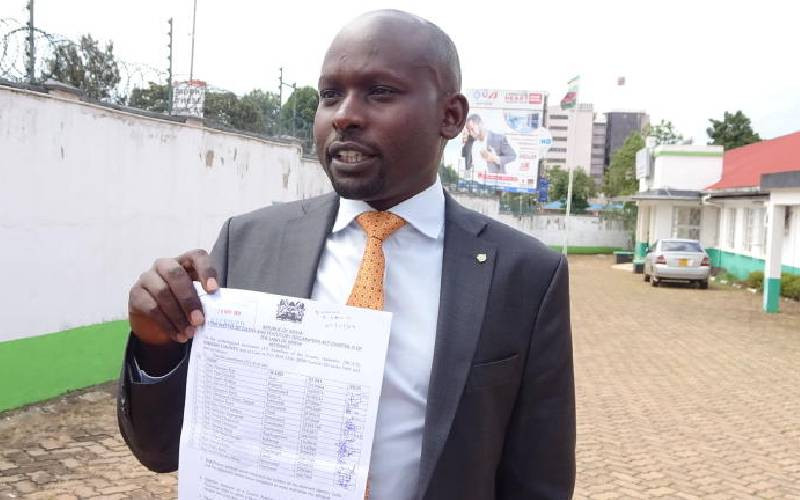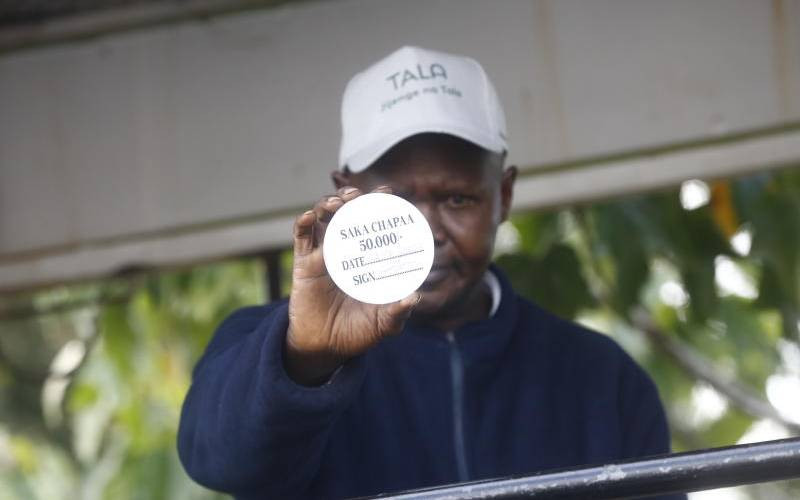
The real estate sector is one of Kenya’s most significant economic pillars, accounting for seven per cent to 10 per cent of the country’s Gross Domestic Product. Yet, it remains riddled with issues that undermine its potential to contribute fully to the country’s development.
A major reason for this is the prevalence of quacks posing as estate agents, who often lack the requisite expertise and ethics needed to handle property transactions. This is why it is crucial to urgently professionalise the sector – starting with proper registration and enforcement of standards among estate agents.
The Estate Agents Registration Board (EARB), which has been in the forefront of efforts to bring sanity into the sector, recently launched a five-year strategic plan whose key goal is to inject professionalism in real estate. The plan aims to categorise estate agents, depending on their qualifications and competence. This will allow individuals interested in practicing real estate to apply for registration within their level of training, experience and scope.
It is a great step towards inclusivity of all categories of estate agent who otherwise play a critical role within their grade. It reflects a broader understanding that Kenya’s real estate market is diverse and requires expertise at difference levels to operate efficiently. For example, the role of a land broker is different from that of a property manager. While the industry requires both, the expertise required for each is different. A property manager will receive a certificate for property management and this will be different from that of a land broker.
The presence of quacks and unregulated segments of the real estate sector has exposed Kenyans to fraudulent schemes and poor service delivery. According to a 2022 survey by the Kenya Property Developers Association, nearly 30 per cent of real estate transactions in Nairobi involved fraudulent practices, ranging from fake property listings to forged ownership documents. The survey said quacks are often at the centre of these incidents, leading to significant financial losses for buyers and tarnishing the sector’s image.
EARB’s new strategic plan is a significant milestone in professionalising Kenya’s real estate sector. The plan has put emphasis on compliance and stricter enforcement of laws and regulations governing estate agency. This will include a crackdown on quacks and steep penalties for those found engaging in fraudulent and unethical practices. Enforcing compliance will help build a more trustworthy real estate environment that can attract both local and international investors.
Countries like the United Kingdom and Australia offer valuable lessons in professionalising real estate. In the UK, the introduction of the Property Redress Scheme and mandatory registration for estate agents have dramatically reduced fraudulent activities, leading to greater consumer confidence. In Australia, the Real Estate Institute of Australia enforces a stringent code of conduct for agents, ensuring that all transactions are handled with utmost professionalism. These models have resulted in more stable and transparent real estate sectors, bolstering economic growth and enhancing investor confidence.
In Kenya, efforts are underway not only to focus on registration but also offer continuous training and education for agents. The mandatory continuous professional training for registered agents on emerging market trends, customer service, ethics, and legal requirements will ensure agents remain competent and up-to-date with industry standards.
Ms Macharia is the chairperson of EARB
 The Standard Group Plc is a multi-media organization with investments in media
platforms spanning newspaper print operations, television, radio broadcasting,
digital and online services. The Standard Group is recognized as a leading
multi-media house in Kenya with a key influence in matters of national and
international interest.
The Standard Group Plc is a multi-media organization with investments in media
platforms spanning newspaper print operations, television, radio broadcasting,
digital and online services. The Standard Group is recognized as a leading
multi-media house in Kenya with a key influence in matters of national and
international interest.
 The Standard Group Plc is a multi-media organization with investments in media
platforms spanning newspaper print operations, television, radio broadcasting,
digital and online services. The Standard Group is recognized as a leading
multi-media house in Kenya with a key influence in matters of national and
international interest.
The Standard Group Plc is a multi-media organization with investments in media
platforms spanning newspaper print operations, television, radio broadcasting,
digital and online services. The Standard Group is recognized as a leading
multi-media house in Kenya with a key influence in matters of national and
international interest.











